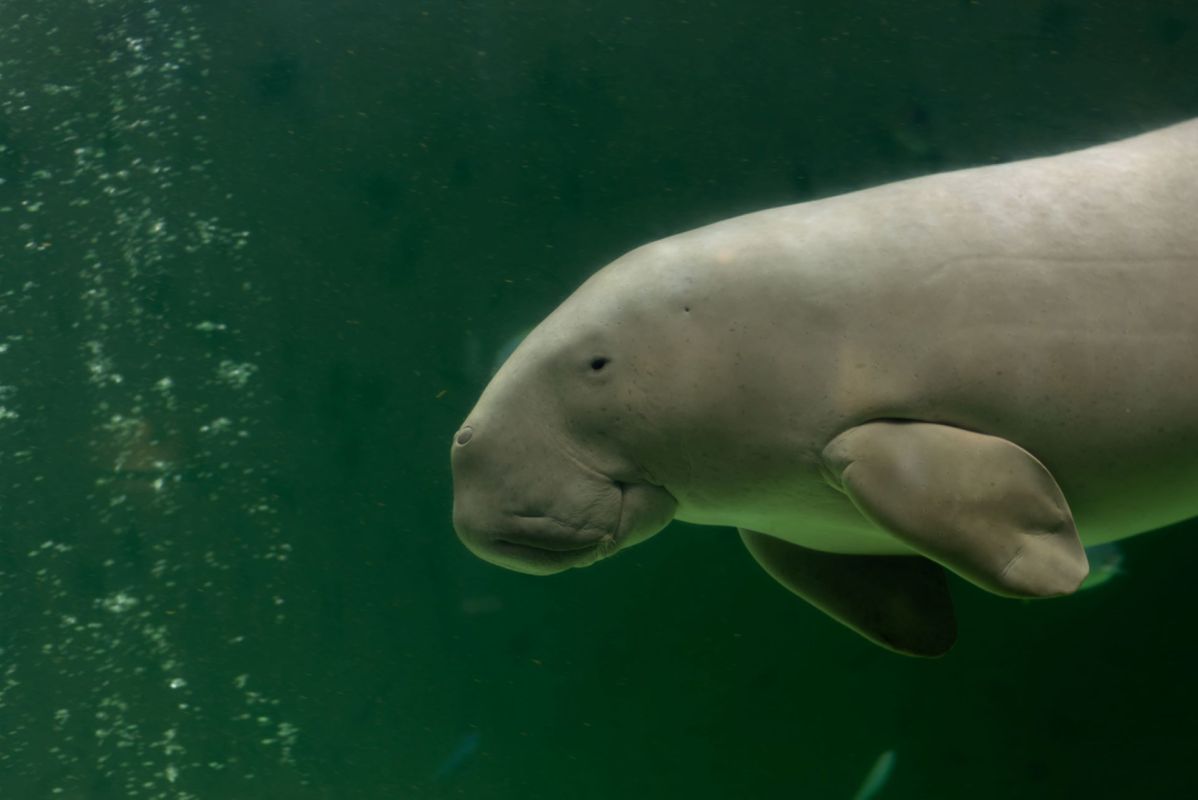An autopsy of a rescued baby dugong that didn't survive revealed that it had died after ingesting plastic. Four years later, its death continues to serve as a reminder of the harm plastic pollution can cause to sea creatures.
What's happened?
Mariam, an eight-month-old dugong, was rescued in 2019 after getting stranded on a beach in Thailand. The creature affectionately known as a sea cow had become the face of marine conservation after a video of her nuzzling her rescuers went viral.
However, just five months after being relocated to a rehabilitation facility so that she could be released back into the wild, Mariam died.
Her autopsy showed several pieces of plastic in her stomach, one of which was eight inches long.
"We could partially treat the respiratory infection, but the obstruction of plastic rubbish could not be cured," veterinarian Nantarika Chansue said. "Everyone is saddened by the loss, but it reiterates that we need to save the environment to save these rare animals."
Why is the dugong's death concerning?
According to the International Union for Conservation of Nature, dugongs are considered a vulnerable species, with their population trending downward.
It is believed that there are just 200 dugongs left in Thailand, many of which live in marine protected areas.
And at the current rate at which plastic enters the ocean, we continue to push dugongs and several other types of marine species closer to extinction.
According to Surfers Against Sewage, around 8 million pieces of plastic end up in the ocean every day, which comes out to about 13.2 million tons annually.
As a result, one in three fish caught for human consumption contains plastic, and 100,000 marine animals and 1 million sea birds die each year from plastic pollution.
What can be done about plastic pollution?
There are plenty of simple changes that we can make to our daily lives to cut down on plastic waste and limit future cases of Mariam from happening.
For example, switching from plastic water bottles and lunch bags to reusable containers is not only beneficial to the planet but to your wallet, too.
Even something like changing your beer brand of choice to support companies that have made eco-friendly decisions, like Coors Light, Carlsberg, and Guinness, can have a positive long-term effect on the planet's health.
Taking the time to understand recycling symbols and figure out what can and cannot be recycled can also go a long way in helping reduce plastic waste in our oceans.
Join our free newsletter for weekly updates on the coolest innovations improving our lives and saving our planet.









